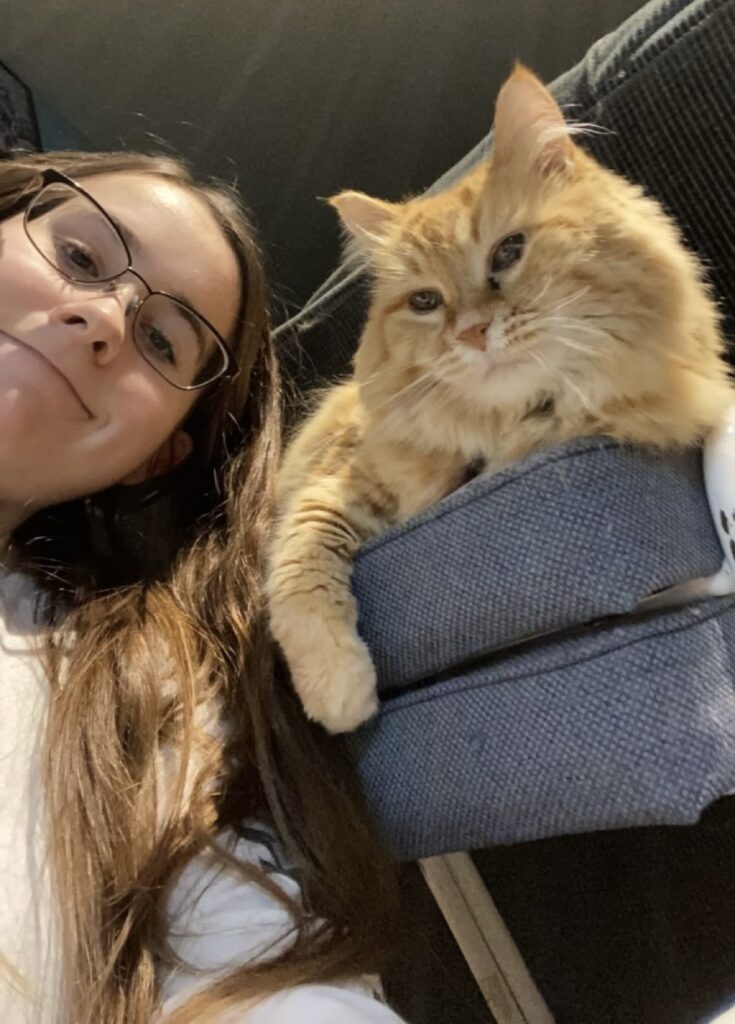Hi! I am Alyssa Mozel. I am descended from British, French, Polish, and Ukrainian colonial settlers that farmed on land in both Saskatchewan and Manitoba. Most of my Great-Grandparents were immigrants to Canada, and they benefitted off of the Treaties and the land that the Canadian Government stole from Indigenous Peoples. I also grew up in a rural town, comprised mostly of white residents, that did not see their privilege nor how they benefitted from the Treaties more than our Indigenous counterparts did.
Part of what I want to do as a teacher is to teach about Treaties, Residential Schools, and Indigenous cultures and communities with a fairer, and less superficial, lens. In addition, connecting this to the land and the history that it holds is very important to me. As I have discovered through my University courses, going beyond the basic facts and information of all of the things I just mentioned is crucial to getting students to understand Treaties and the obligations and responsibilities they have because of them. Students need to be able to see the connections between the historical events with current day oppression, privilege, and power as well as connect and centralize their identities within these current day issues and colonial structures. The objectives of teaching about these things in this way is to help students have a better understanding of the lived realities of people in Canada, ensure that students have the proper knowledge to address these issues when they inevitably face them in the real world, and to create compassion in students and support their abilities to enact changes for social justice on the world around them. Truthfully, I believe that all of these objectives should be at the forefront of several lessons or major assignments that students do, because all of these objectives involve skills that all students will absolutely need in the real world.
In addition to this, I want to ensure that my classroom has the proper representation for everyone. In other words, I want to use materials that represent people of different cultures, countries, skin colours, genders, and sexualities. The reason why I aim to do this is because my schooling did not have much representation of anyone that was not white, cis gender, and heterosexual. In terms of gender identity and expression, I did not feel properly represented. Also, I had gay friends and Filipino and Filipina friends that never felt represented in or connected to most, if not all, of the information that we learned in all of our classes. To clarify, I do not want these materials, books, text, or whatever they turn out to be just sitting on my shelves as placeholders that somehow prove that I support diversity. I want to ensure that they are actual course materials that students will work and engage with. There is such a wealth of knowledge that students can gain and tap into when learning about other cultures, countries, etc. and students, if they feel comfortable to do so, can share their personal experiences within their cultures and more which can help other students get further engaged with and compassionate and accepting towards those groups of people. If I get the proper materials to ensure that there is ample representation, I hope to have students better connect to course content, engage with course content, and, most importantly, create a safe space for diversity that does not shy away from talking about oppression, the “-isms”, privilege, and oppressive structures.
In order to embrace all of these differences and because variety is the spice of life, using various instructional strategies and assessments will allow for a more fleshed out class that can use inquiry, brainstorming, and interest-based learning (just to name a few) to help myself teach students as well as help students to learn and not be bogged down by and be disengaged from what they are learning. Also, it is very difficult for students to gain deeper understandings of the complex issues I mentioned earlier from just doing direct instruction even if it is a very useful instructional strategy that I will use to lay the foundation of many of these topics. Plus, it is not fair to all of the different learning types to force everyone to learn and understand these topics in the exact same way.
I just wanted to end this video with the acknowledgement that I am still learning about all of these things and the best ways that in which I can do them. As I believed was emphasized in this class, as well as several others, teachers should be in the process of ‘always becoming’. In other words, I will always be learning and growing no matter how long I have been teaching. And it is a journey that I am excited to continue.

